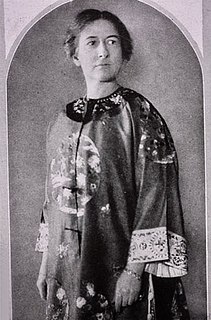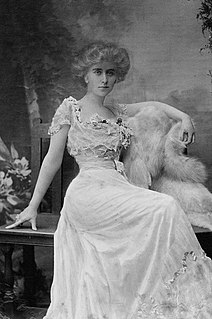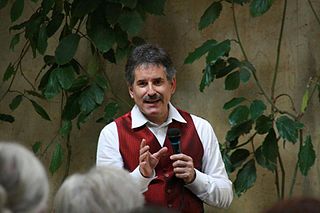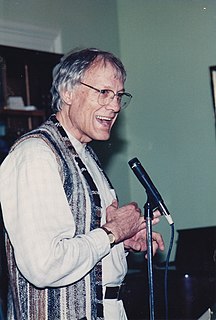A Quote by Barbara Deming
Nonviolent actions are by their nature androgynous. In them the two impulses that have long been treated as distinct, 'masculine' and 'feminine,' the impulse of self-assertion and the impulse of sympathy, are clearly joined; the very genius of nonviolence, in fact, is that it demonstrates them to be indivisible, and so restores human community.
Related Quotes
Social evolution is a resultant of the interaction of two wholly distinct factors: the individual ... bearing all the power of initiative and origination in his hands; and, second, the social environment with its power of adopting or rejecting both him and his gifts. Both factors are essential to change. The community stagnates without the impulse of the individual. The impulse dies away without the sympathy of the community.
I myself would go for nonviolence if it was consistent, if everybody was going to be nonviolent all the time. I'd say, okay, let's get with it, we'll all be nonviolent. But I don't go along with any kind of nonviolence unless everybody's going to be nonviolent. If they make the Ku Klux Klan nonviolent, I'll be nonviolent. If they make the White Citizens Council nonviolent, I'll be nonviolent. But as long as you've got somebody else not being nonviolent, I don't want anybody coming to me talking any nonviolent talk.
When you awaken to what I call the Authentic Self, which is the spiritual or evolutionary impulse, what begins to emerge is the dawning recognition of the fact that each one of us, at our highest level, is that Authentic Self, which is actually the same energy and intelligence that originally inspired the entire creative process. You begin to intuit and feel directly connected to the very impulse that initiated the whole event fourteen billion years ago and is driving it right now.
In 1989, thirteen nations comprising 1,695,000 people experienced nonviolent revolutions that succeeded beyond anyone's wildest expectations . . . If we add all the countries touched by major nonviolent actions in our century (the Philippines, South Africa . . . the independence movement in India . . .) the figure reaches 3,337,400,000, a staggering 65% of humanity! All this in the teeth of the assertion, endlessly repeated, that nonviolence doesn't work in the 'real' world.
Now the basic impulse behind existentialism is optimistic, very much like the impulse behind all science. Existentialism is romanticism, and romanticism is the feeling that man is not the mere he has always taken himself for. Romanticism began as a tremendous surge of optimism about the stature of man. Its aim - like that of science - was to raise man above the muddled feelings and impulses of his everyday humanity, and to make him a god-like observer of human existence.


































